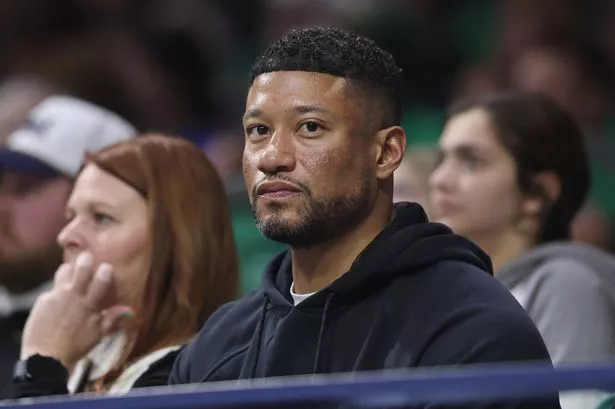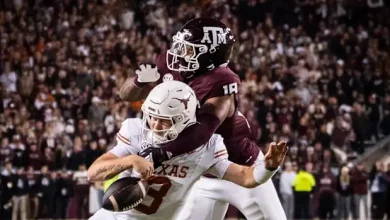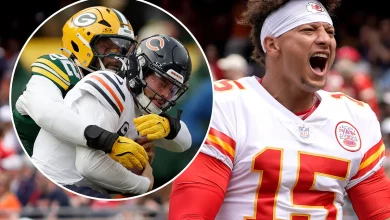Notre Dame head coach Marcus Freeman wants college football to change transfer system

The landscape of college football has evolved dramatically over the past decade. Among the most significant changes has been the rise of the transfer portal, which has revolutionized the way players move between programs. While the portal has created new opportunities for student-athletes, it has also introduced challenges and controversies surrounding team stability, fairness, and player development.
Notre Dame head coach Marcus Freeman has emerged as one of the prominent voices calling for reform of the current transfer system. Known for his thoughtful leadership and commitment to both players and program integrity, Freeman’s perspective sheds light on the complexities of modern college football recruiting and roster management.
This article delves into Freeman’s position on the transfer portal, the issues he identifies, and the potential pathways for change that could benefit players, coaches, and the sport as a whole.
The Transfer Portal: A Double-Edged Sword
The NCAA transfer portal was introduced in 2018 as a centralized database that allows student-athletes to declare their intention to transfer and enables other programs to contact them. Prior to the portal, transferring players faced a cumbersome, often restrictive process that required permission from their current school, frequently involving sitting out a year before becoming eligible to play.
The portal was intended to increase transparency and empower athletes with more freedom to control their careers. Since its inception, the number of transfers has skyrocketed, transforming the recruitment landscape and forcing programs to adapt.
However, this new era of mobility has sparked debate:
- For Players: The portal offers freedom, allowing them to leave unfavorable situations, seek more playing time, or find a better fit academically and athletically.
- For Coaches and Programs: It introduces volatility, making roster management unpredictable. The constant influx and outflow of players challenge team chemistry and long-term planning.
Notre Dame’s Marcus Freeman recognizes both sides but argues that the system, as it currently stands, needs adjustment to better serve all stakeholders.
Marcus Freeman’s Concerns About the Transfer System
Freeman has publicly expressed his belief that while the transfer portal was designed with good intentions, it has led to unintended consequences that undermine the stability and competitive balance of college football.
1. Roster Instability and Team Chemistry
Freeman has noted that the high volume of transfers can disrupt team cohesion. Football is a sport built on unity, trust, and collective effort. When key players transfer frequently, it becomes challenging to maintain a consistent culture and identity.
“Teams are built over time, with relationships that go beyond just the field,” Freeman said in recent interviews. “When players come and go constantly, it’s hard to develop that bond.”
Notre Dame, with its emphasis on character and culture, feels the ripple effects of constant roster churn. Freeman worries that the game’s essence — teamwork and loyalty — may erode if transfers continue at their current pace.
2. Competitive Imbalance and “Free Agency” Feel
Freeman has voiced concerns that the transfer portal resembles a free agency market, where programs compete to acquire players who can immediately impact games. This environment can disadvantage programs that focus on developing talent long-term or recruiting younger players.
“The portal can favor programs with the most resources or immediate needs, leading to an uneven playing field,” Freeman explained. “That’s not what college football is about.”
He worries that this dynamic undermines recruiting efforts and the development pipeline, making it harder for coaches to build teams with integrity.
3. Impact on Player Development
While the portal offers players mobility, Freeman argues that frequent transferring may hinder long-term player development. Moving from program to program can disrupt coaching continuity and individualized growth plans.
He advocates for a system that encourages commitment and patience, allowing athletes to fully benefit from their original choice of program before seeking new opportunities.
Proposed Changes and Solutions Freeman Supports
Understanding the need for balance, Marcus Freeman has suggested several potential reforms aimed at making the transfer system fairer and more sustainable.
1. Limits on Transfer Frequency
One idea Freeman supports is restricting the number of times a player can transfer without penalty. Such a policy would encourage thoughtful decision-making and discourage impulsive moves motivated by short-term gains.
Limiting transfers could help preserve roster stability and deepen team chemistry, fostering environments where players grow together.
2. Standardized Waiting Periods
Freeman proposes re-evaluating the current waiting periods that players must sometimes endure before becoming eligible to play at their new school. The current system allows for immediate eligibility in many cases, but this can encourage frequent transfers.
By standardizing waiting periods, perhaps with exceptions for extenuating circumstances, players might be more inclined to stay committed to their original program, while still protecting their rights.
3. Enhanced Player Support Systems
Another focus of Freeman’s is improving the support networks for players considering transfers. This could include better counseling, mentorship, and guidance to ensure transfers are well-informed decisions rather than reactions to temporary challenges.
Such programs would help athletes weigh all factors—athletic, academic, personal—before deciding to transfer, leading to better outcomes.
4. Collaboration Between Programs
Freeman advocates for increased collaboration and communication between programs to ensure transfers are handled with transparency and respect for all parties involved.
By fostering mutual respect, programs can create a more ethical transfer culture, reducing conflicts and misunderstandings that sometimes accompany player moves.
How Notre Dame Is Navigating the Transfer Landscape
Notre Dame football under Marcus Freeman has adapted to the realities of the transfer portal while staying true to its core values.
Freeman and his staff have been selective in pursuing transfers, focusing on players who not only fill immediate needs but also align with the program’s culture and academic standards. This approach aims to balance short-term competitiveness with long-term cohesion.
At the same time, Notre Dame works hard to retain its players, building relationships and support systems that encourage commitment. This dual strategy—responsible recruiting combined with retention efforts—is central to Freeman’s vision.
The Bigger Picture: Transfer Reform in College Football
Marcus Freeman’s calls for transfer reform reflect a broader conversation happening across college athletics. Coaches, administrators, and players are wrestling with how to preserve fairness and integrity amid rapid change.
NCAA leaders have explored various proposals, including transfer limits and revised eligibility rules. Some conferences have implemented their own policies to regulate transfer activity.
The challenge lies in balancing player freedom with program stability. The ideal system empowers athletes without turning college football into a free market for talent.
Freeman’s voice adds weight to this discussion, especially given Notre Dame’s standing as a storied program with deep-rooted traditions.
Notre Dame head coach Marcus Freeman’s advocacy for change in the college football transfer system highlights the complexity of modern collegiate sports. His perspective reflects a desire to protect the values of loyalty, development, and competitive balance, while respecting players’ rights.
As college football continues to evolve, reforming the transfer portal will be essential for maintaining the sport’s integrity and ensuring a positive experience for all involved.
Freeman’s thoughtful proposals offer a roadmap toward a more equitable system—one that supports players’ freedom but also honors the collective effort and culture that define college football at its best.









